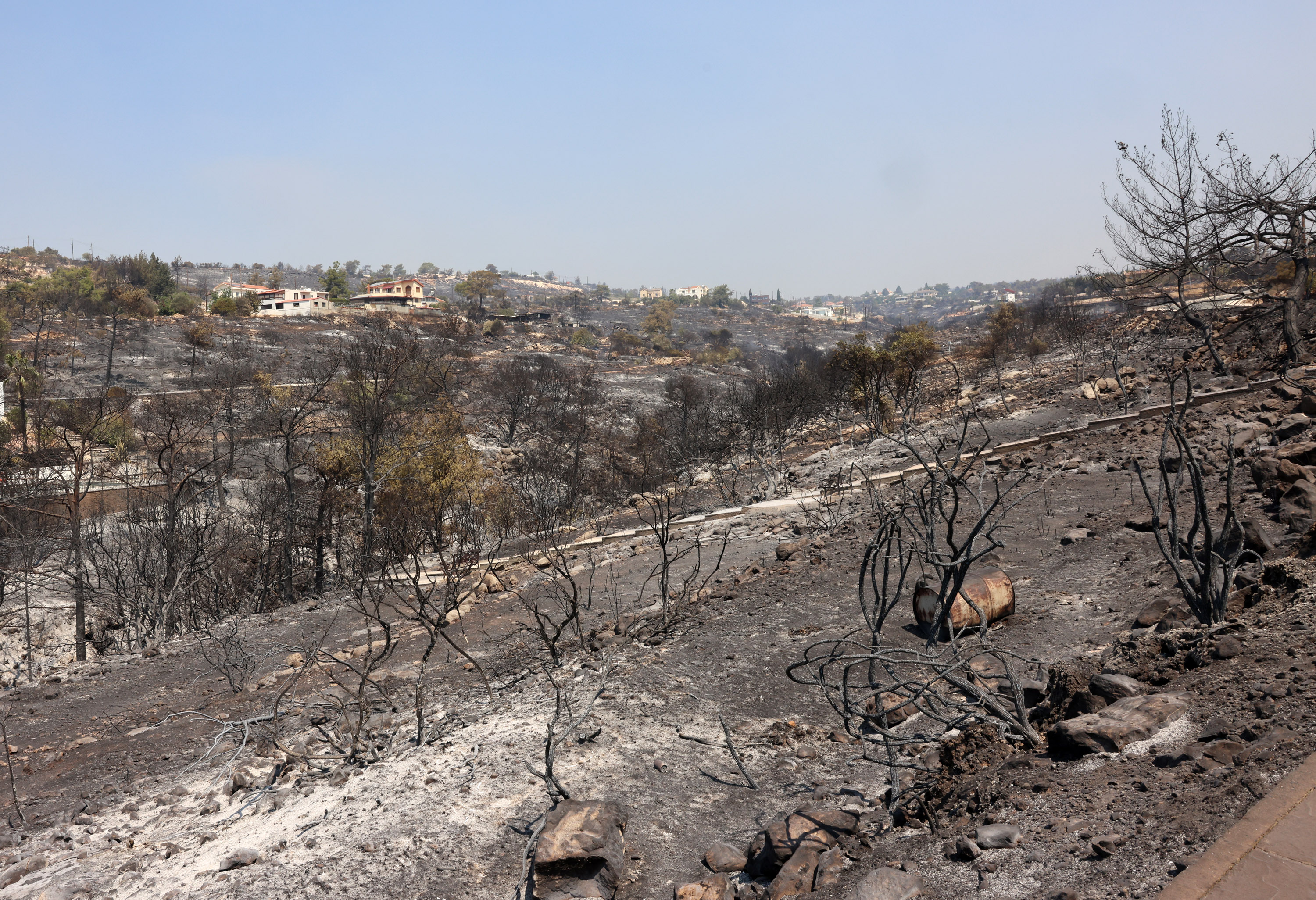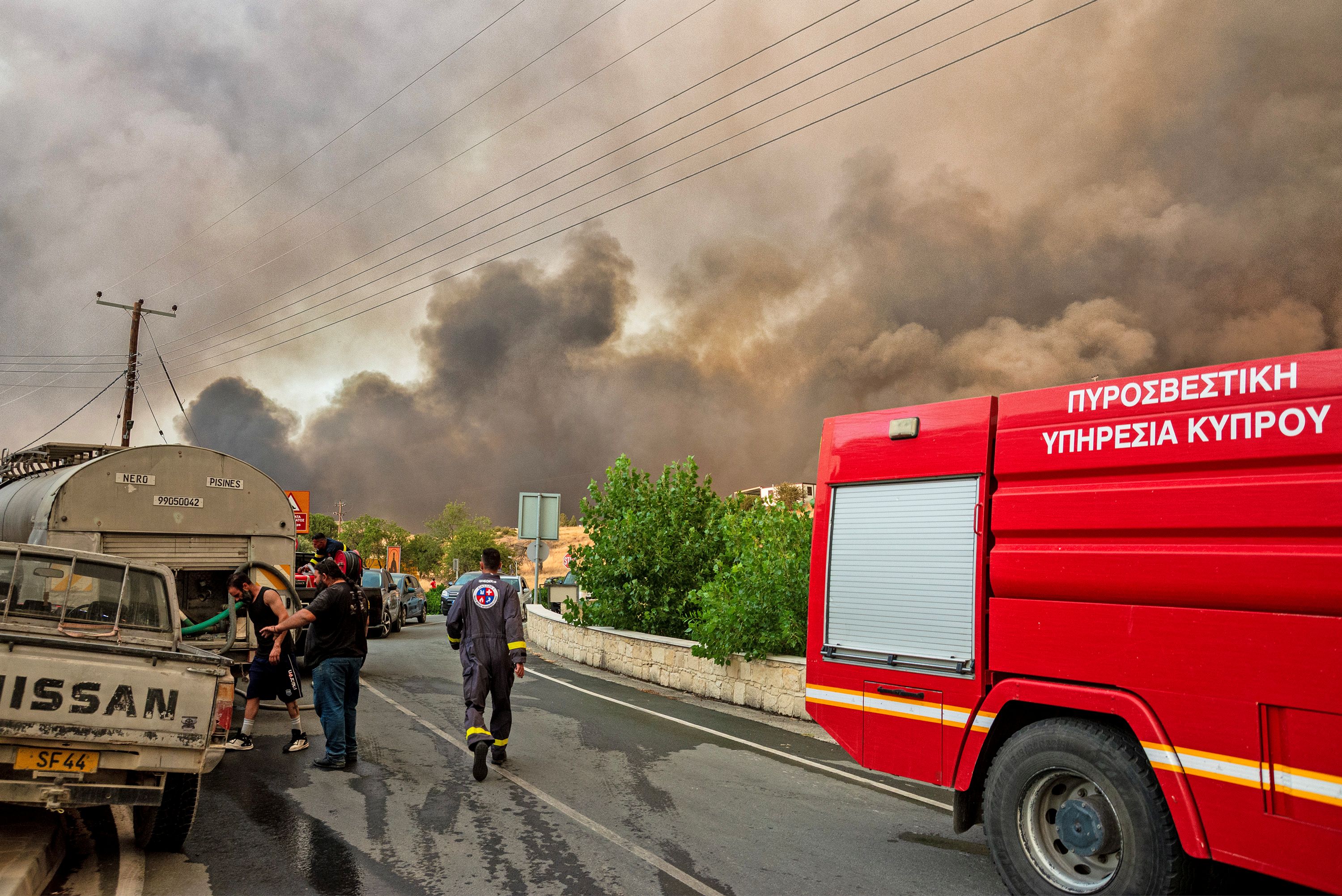Eleni Panayiotou
Last Wednesday afternoon, I finished my gym class and checked my phone only to find several messages and missed calls enquiring after the well-being of my family. It was 6 o’clock. I called back.
My mother answered the phone and, in a panic, told me that she was told to evacuate and was driving to Agios Amvrosios. With a friend we drove from Nicosia to Limassol, where we came face to face with the fury of nature so often seen in post-apocalyptic Hollywood films.
As we turned off at the village of Erimi and into Kantou the ferocious dark cloud of smoke engulfed us but we didn’t come across any closed roads, fire brigades or police cars so we kept driving, into the belly of the beast. My mother told me in our next phone call that they moved on to the village of Kyvides, as the fire, like a dragon, was quickly destroying everything in its path.
We arrived, cars parked, scared faces, exhausted elderly people, without a plan and without guidance waited.
Quickly we realised that we had to move again, the flames were but a stone’s throw away – the dragon was moving fast.
That night we stayed at a relative’s house. We knew nothing. Was there a home to go back to the next day? We feared the worst. Just like us, there were dozens of other people, some without a place to stay the night.
I quickly deconstructed everything and allowed fate to take the burden. Kismet, I said. Regeneration. What will be will be. The nightmares didn’t allow for much sleep.

The next day my mother and I went up to the village, our home was intact but other homes had perished. The drive to the village was heartbreaking.
As we drove past, I looked on as the land I grew up on had burnt to the ground. The fire took over 20 houses in my village at the Troodos foothills and thousands of acres of green. This is a moment in time that I and the residents of all the communities affected will not easily forget.
An absolute tragedy. A failure on so many levels.
The fire took over 120 square kilometres of forest. Unpredictable, uncontrolled, fuelled by a Mediterranean heatwave, pushing temperatures to 43-44 °C, strong dry winds and profound drought, Reuters describes it as the most devastating blaze Cyprus has seen in more than fifty years.
And it is, but arguably the greatest tragedy is the environmental one; landscapes rich in biodiversity and centuries‑old olive groves now have been reduced to ash.
The first draft of this piece spoke about the sheer destruction of the land with facts and figures. But upon second thought is there really such a need to state the obvious? Do I really need to tell you “how bad this is”?
For those of you lucky enough to have gone for a hike through Limassol’s villages you will know that the wildfire aftermath has destroyed biodiversity. Birds are not singing, the cicadas seem quieter and animals are sombre.
The forest will grow back, but habitat restoration schemes are needed. I saw communities trying to guide themselves through the flames, on that night we went from one coordination centre to the other trying to get away from a fire that was stronger, faster, ferocious; early‑warning systems and community evacuation protocols must be implemented because citizens, we, the citizens, deserve clear evacuation plans, particularly in rural and hillside villages.
Climate resilience should be at the heart of planning, this means urban expansion rules that respect fire corridors, agricultural regulation that maintains soil integrity.
People ask me how I am. I smile; I laugh but truly I am not fine. Nobody is fine. Nobody should be fine because we failed.
Eleni Panayiotou is Communications Coordinator, journalist and strategist at Isotech Ltd






Click here to change your cookie preferences